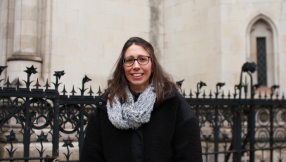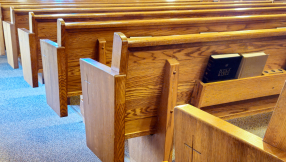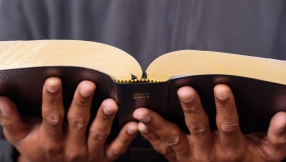
Bible studies can be precious times, when Christians gather together around God's word. In small groups it's possible to share our own insights into the Scriptures so we can each hear what God is saying to the other. It can be a very rich and satisfying experience.
It can also be frustrating and even annoying. One person takes it on himself to "lead" the meeting, or is asked to do so. It turns into an opportunity for sharing his own opinions, at great length.
Another person has superior Bible knowledge and wants everyone to know it. She will send the group chasing through text after text, thought no one is much the wiser when she's finished.
Or there might be two or three people who are all vying for dominance, quoting different verses and authorities at each other and determined not to give way. It can get quite bad-tempered and no one really learns anything.
With a good group leader, personalities like this can be controlled. But there's a way of running a Bible study which minimises the risk that it will go sour, and lets everyone contribute on the same level, no matter how much or how little they know.
It is often known as the Swedish method, so named – according to Peter Blowes in The Briefing – by Ada Lum, a staff worker for the International Fellowship of Evangelical Students, who saw it used by a group of Swedish students. After prayer, a passage of scripture is read aloud and then each person studies it individually. They are on the lookout for three things:
– a light bulb, something that shines out of the passage and grabs their attention
– a question mark, something they don't understand and would like clarified
– an arrow, a personal application to the reader's life.
They should be able to write down at least one of these symbols for each passage.
First, the light bulbs are discussed by the group, then the question marks and then the arrows.
There are many advantages to this way of reading the Bible together. It not only helps stop one person being dominant, but it makes us pay close attention to what the Bible actually says. It also helps us form questions that others can help answer, and it gives us something to do at the end of it.
And while it is excellent for group work, it's a technique we can bring into our private study as well, as we ask God to speak to us there.
Follow Mark Woods on Twitter: @RevMarkWoods













